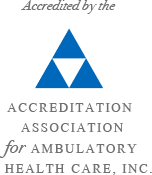Lower GI Endoscopy & Colonoscopy in New York, NY

What is a lower GI endoscopy (colonoscopy)?
A lower GI endoscopy, also referred to as a colonoscopy, is a procedure used to examine a person’s large intestine (colon). There is more than one type of lower GI endoscopy, including colonoscopy and flexible sigmoidoscopy. A colonoscopy is used to examine the lining of the large intestine via an endoscope, which is a long, thin tube that is flexible and has a camera at one end.
What are the advantages of having a regular colonoscopy?
Having a regular colonoscopy procedure has many advantages, including:
- Considered one of the most effective cancer screening prevention exams
- Can detect and help prevent colorectal cancer
- Can detect and guide the removal of precancerous polyps before they are malignant
- Patient experiences no discomfort during the procedure
Why is a colonoscopy performed?
The procedure is primarily used by a gastroenterologist in order to screen for colon cancer. A colonoscopy can help to detect and treat precancerous growths in the colon at their earliest stages. Depending on your personal needs and family history of polyps or colon cancer, the frequency of colonoscopies and age at which you start colonoscopy screening may vary.
In addition, a colonoscopy may be recommended to determine the cause of various other concerns.
When is a lower GI endoscopy needed?
A colonoscopy may be warranted for symptoms such as:
- Chronic diarrhea
- Significant changes in bowel habits
- Severe abdominal pain
- Rectal bleeding
How to prepare for the colonoscopy procedure
Before undergoing a colonoscopy, your doctor will provide specific instructions about how to prepare for your procedure. In order to ensure your colon can be thoroughly and accurately examined, patients will need to consume a laxative regimen. You will also need to arrange for someone to escort you home from your procedure. Prior to your colonoscopy, you will receive medication so that you experience no discomfort throughout the procedure. Once sedated, your doctor will carefully guide the endoscope through your digestive tract.
What to expect during the procedure
As the procedure is performed, your gastroenterologist will closely examine the lining of your large intestine on a high definition monitor, looking for any potential problem areas, such as polyps. In addition to taking images of the large intestine, your doctor may take a sample (also known as a biopsy) during the colonoscopy. Biopsies are usually only needed when the tissues must be scanned for cancerous cells. A colonoscopy typically takes around 30 minutes, depending on the complexity. Following your procedure, you’ll be able to return home with the assistance of a patient escort.
Schedule Your Consultation Today!
If you believe you may need a colonoscopy, the first step is to consult with a skilled NYC gastroenterologist. Gramercy Park Digestive Disease Center (GPDDC) is home to top board-certified gastroenterology physicians, with extensive experience in digestive disease diagnosis and treatment. Call (212) 979-3237 or use the form on this page to learn more about our GI services and treatments.


